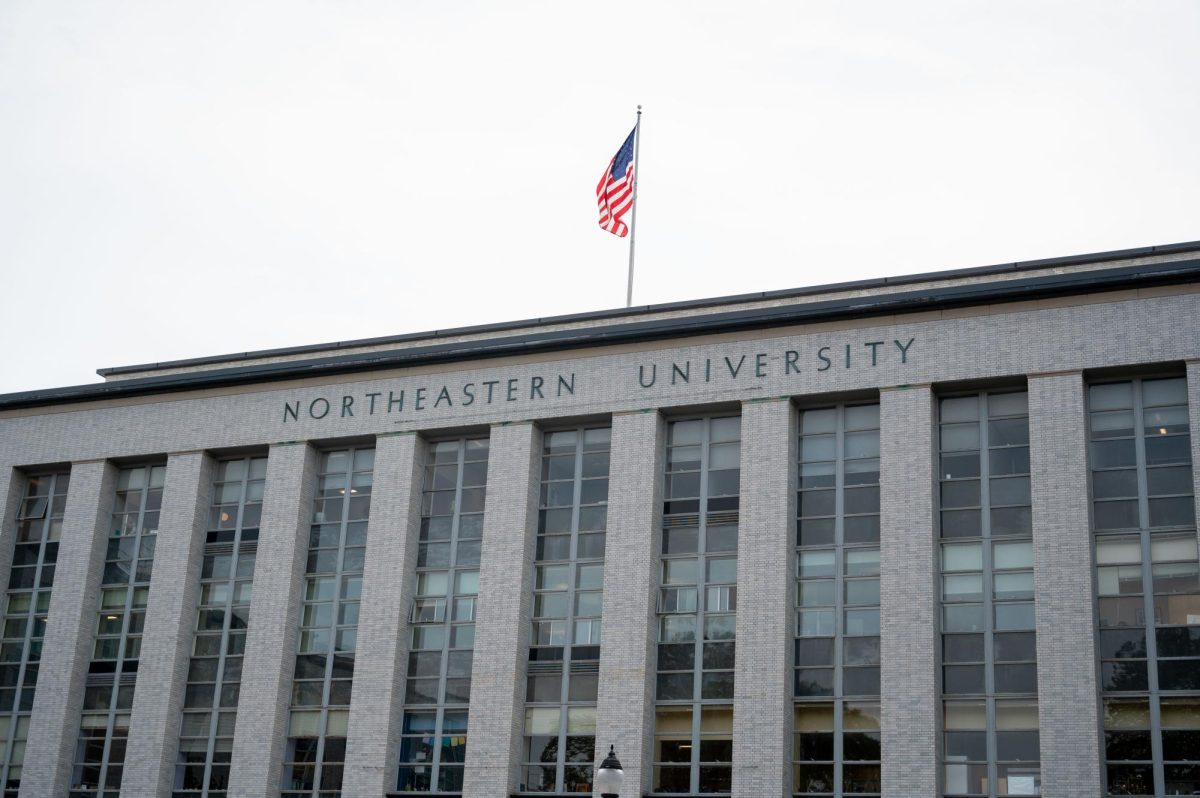By Steve Babcock
The Student Government Association threw its hat into the debate over the 2004-05 budget for the first time in Northeastern history Thursday when it introduced legislation that calls for a number of academic improvements to be instated with tuition increase.
The bill, which some senators referred to as a “laundry list” of requests for the spending practices, proposes a reworking in areas of interest to both students and faculty including financial aid, an increase in library resources and a reworking of the way the university budgets for student costs.
SGA President Michael Romano said that, equally important to the provisions, was an SGA stance against what he called the “dependence on tuition” of this university.
“If this 4.5 to 5 percent [tuition increase] happens, it could be a considerable tax on the students,” Romano said. “We need to increase institutional advancement and alumni relations.”
Bills that SGA has the power to suggest initiative on, but does not have the ability to enact – such as university policy – are called the “Sense of the Senate.” This particular bill was authored by the SGA arm known as the University Budget Committee (UBC).
The ability to propose budget requests to the university is new ground for SGA. After many years of trying, the Senate now has two seats on the Committee on Funding Priorities and, therefore, the right to give the students’ sense of what the university should have as its priority, in terms of funding.
One of the main provisions the UBC worked out under the bill was a recommended cap on a tuition increase of 2 percent.
Michael Benson, the chair of the UBC, said the 2 percent tuition increase was established by the UBC after working each of the other requests of the bill into the university’s academic budget.
“Actually, with only a 1.75 percent tuition increase, we can fund the priorities without taking money from any other areas,” he said.
While he said many students support no tuition increase, Benson said it would be “unbeneficial” to ask for such a move, because of the other costs that apply to maintaining such a large university.
He said that the other 0.25 percent was to account for inflation, as well as a rise in other university costs over the past year.
Under that tuition increase cap, the legislation then proposed a number of provisions to improve what it calls “academic quality” throughout the university.
One of the main requests is in the area of financial aid, which Romano said is always a main concern of students.
The model calls for the implementation of a yearly review of each student’s package to adjust awards with the rising cost of tuition, rather than the broader five-year guarantee that is currently in place.
“If a student comes in as a freshman and tuition is increased … their financial aid will not increase along with it because the university does not offer enough financial planning,” Benson said. “What [the legislation] is saying isn’t to charge less, but rather to actually make financial aid proportional [to tuition increases] rather than guaranteed over five years.”
It also called for an increase in tenure-track and tenured faculty over the next five years, the hiring of 10 academic advisors in colleges where the university sees fit and an increase in the library’s budget, allotting enough money to purchase new books and reference materials.
Benson said the library was involved in the top priorities because of what the legislation calls a failure by the university to adequately fund the library over the years. Currently, purchasing periodicals is eating up most of an operating budget that has not even been indexed to tuition in recent years’ budgets.
The legislation also proposed a 3 percent faculty raise and an increase in the operating budgets of each college by $2 million a year over the next four years.
Under the provision, the $2 million would be allocated based on which college expressed the most need.
Romano and Senator Andres Vargas said students should remain “cognizant of the budget process,” but the long list was needed and indicative of all students’ needs.
“The students aren’t going to compromise basic needs to make sure we balance the numbers for the university,” Romano said. “Students need to stop appealing to the university so the numbers are balanced.”
Many of the recommendations, like the increase in operating budgets and faculty, were made in correlation with the Faculty Senate.
Several senators said the legislation was asking for too much, and asked if there would be any requests for a decrease in costs.
John Guilfoil, a sophomore senator from the College of Criminal Justice, said the length of the list prevented a real focus for students when communicating their message to the university.
“I’m just trying to make sure the interests of the students in the College of Criminal Justice — who I was elected to represent — don’t get lost,” Guilfoil said. “I want to make sure this bill is not just some wish list that we throw at the administration.”
Vargas also said the list was appropriate.
“You can’t have it all,” Vargas said. “You have to take everything the students demand and say, ‘These are the four things I’m going to negotiate,’ and hope that you get one or two.”
Northeastern has currently positioned itself to be in a tier of colleges where students pay more than 94 percent of other schools in the country, according to the legislation text.
Romano said such a tier puts Northeastern in line with schools that offer at least top 100 caliber education.
“Now that we’ve moved into that upper tier, we’ve got to be more sensitive to aggressively taxing the students,” he said.
With an approximate tuition rise of 30 percent over the last five years, as President Richard Freeland said in his State of the University Address this year, many students are dreading even the increase the legislation is proposing.
The UBC arrived at the 2 percent increase, Benson said, after examining a list of funding priorities across the university. The 2 percent figure, or $256 per student, per semester, was a number the UBC found would not hurt the university financially and would not drive retention down.
Benson said that asking for a tuition decrease, or even leveling, would not be prudent, and is unreasonable for the point the university is at.
“We understand the institution is at a pivotal point in its career, and a tuition increase would severely decrease its ability to grow.” Benson said. “We want to put a clamp on the amount of increase. Let’s understand that the economy is in poor shape, and that families are suffering from that.”
The bill is set for debate and a vote next week. If passed, it will be used as the centerpiece for negotiations in the Committee on Funding Priorities when the budget is debated there starting in a few weeks.









